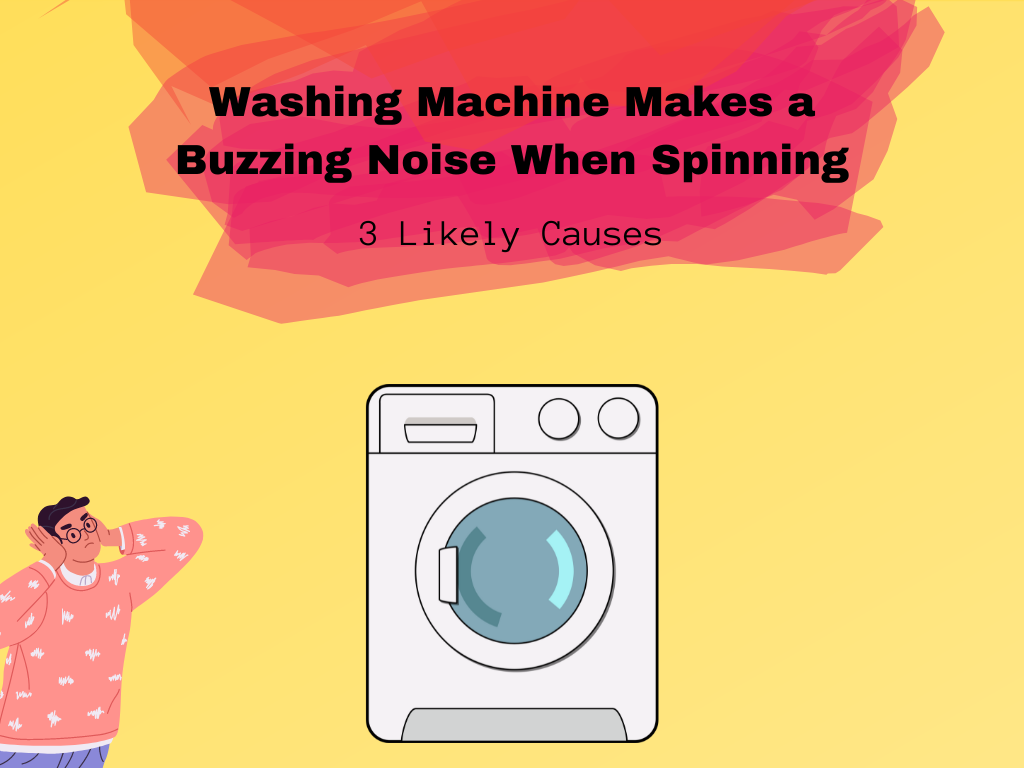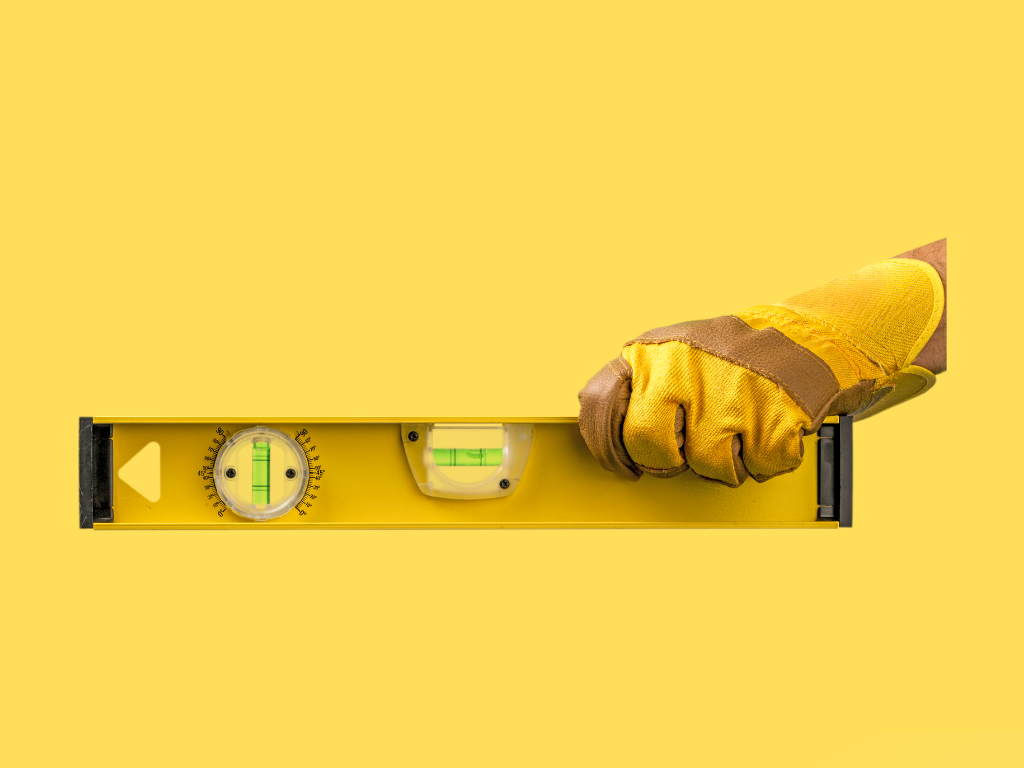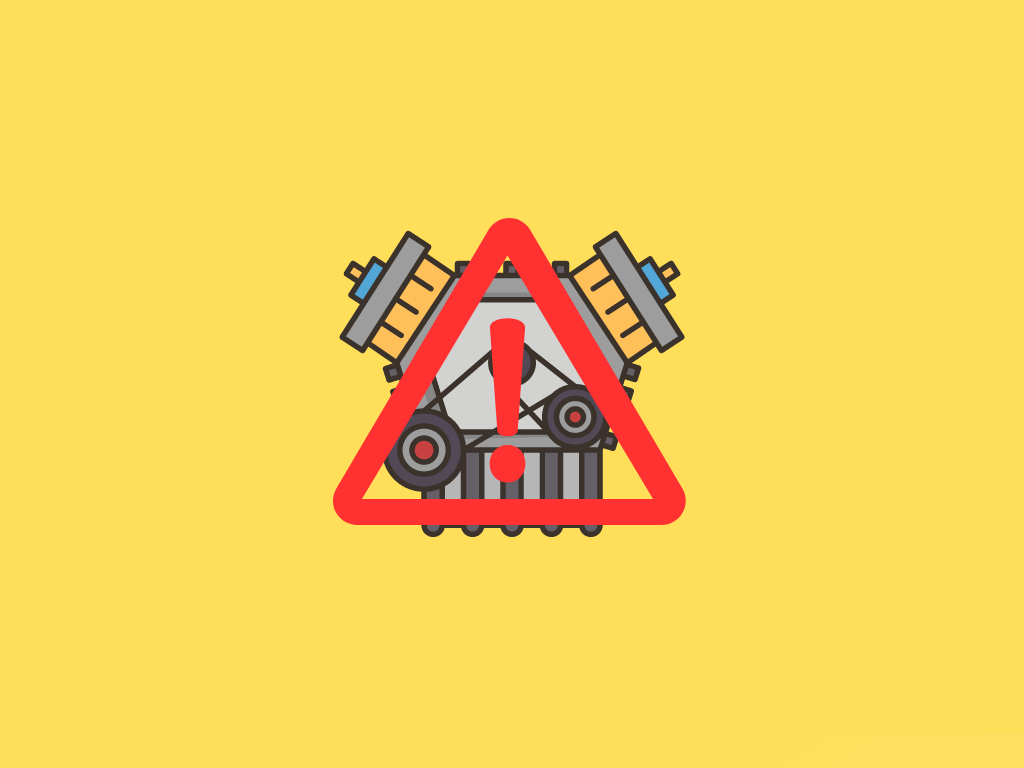Washing Machine Makes a Buzzing Noise When Spinning? (3 Likely Causes)
If you notice your washing machine makes a buzzing noise when spinning, you might be wondering if you should be concerned. In this article, we’ll cover everything you need to know about unnerving buzzing noises coming from your washer.
While you may hear a gentle buzzing sound in some washing machines when the inlet solenoid valve opens to let in freshwater or as the motor spins the basket, a loud buzzing sound is not normal. It could be coming from a kinked or blocked valve or drain, and it probably points to some kind of water supply issue.
Read on below to learn more about the buzzing sound you’re hearing from your washer, as well as some tips on how to handle it.

The most common washing machine noises – quick overview
As you use your washing machine, you may notice various sounds during the laundry process. Some common washing machine noises include banging, clanking, grinding, and rumbling. These could be due to different components in the machine, such as the agitator, spin cycle, and drive motor. Here is a table of common noises and their possible causes:
| Noise | Possible Cause |
|---|---|
| Banging | Unbalanced load or worn bearings |
| Clanking | Loose items, like coins or keys |
| Grinding | Damaged drive motor or pump |
| Rumbling | Worn bearings or drive motor |
Normal vs abnormal noises
It is essential to understand the difference between normal and abnormal noises in your washing machine. Some sounds, like the ones created by the agitator or during the spin cycle, are expected and part of the regular operation.
In contrast, if you hear any unusual noises, such as buzzing, banging, or grinding, you may need to address the issue. Abnormal noises could be due to an unbalanced load, a loose door seal, or a problem with the drive motor. It is vital to pay attention to the sounds your washing machine makes and perform regular maintenance checks to ensure it continues to clean your clothes efficiently.
Why your washing machine makes a buzzing noise when spinning
If there is a loud buzzing sound from your washing machine, check out the following possibilities and rule out the simple things first.
Is the washing machine mounted on a level surface?
If your washing machine is not level, the vibrations caused by the constant, subtle rocking of the machine can explain the buzzing sound.
An unstable washing machine can cause it to vibrate and give off a buzzing sound as it spins.
To fix this issue, make sure the washer is mounted on a flat level surface and that there are no objects in contact with its body that are a source of vibration.
You may have to adjust the washing machine feet to make sure all four supports make solid contact with the ground.

Are there loose metal objects such as coins, zippers, or paper clips in the wash?
While most of the time, this would produce a clanking sound rather than a buzzing sound, the noise could be coming from loose metal objects such as coins, zippers, or paper clips rubbing against the metallic drum as it spins. Inspect the washing machine basket for such objects and remove them.
Always check the laundry for metallic objects before putting them into the washing machine. If the clothes have zippers or any metallic parts, you can insert them in the washer inside out so that they do not rub against the metallic drum.

Check to see if the drain pump is jammed
The most likely cause of the buzzing sound emitting from your washer is likely to be related to a kinked or blocked drain pump or water valve. These hoses and valves that transport water to and from your washing machine can sometimes become clogged or kinked. When this occurs, this can cause the motors that pull and pump water from the machine to work a little harder.
If this is the case, the motor can make a buzzing sound. You may also notice the washing machine unable to drain the water completely.
Check the washer service manual for instructions on how to access and remove any foreign objects that may be jamming the pump. In many cases, you may be able to use a drain snake to purge the items from the hoses. If the issue is with kinking, it may be that the way your washer is installed is cutting off the water flow from the hose by pinching it against the wall.
In this case, simply move the washer to allow a free flow of water to and from these hoses.
Issues with the motor
Lastly, it could also be a fault with the washing machine motor. If this is the case, the motor will likely have to be removed and replaced. This job could require a more technical skillset, and you may have to consult a qualified washing machine technician to support you.

Water Pressure and Inlet Valve Issues
Water pressure and inlet valve issues can also cause buzzing noises in your washing machine. If the water intake is restricted due to clogged hoses, low water pressure, or a faulty inlet valve, it can result in a buzzing noise as the machine struggles to fill with water.
Check the hoses to ensure they are not kinked, twisted, or clogged, and consult the washing machine manual for instructions on checking the inlet valve.
How to prevent issues with your washing machine
Maintaining your washing machine is essential to prevent it from making a buzzing noise. Here are some practical steps to ensure your laundry experience remains smooth and hassle-free.
First, always check the load before starting a wash. Overloading or underloading the machine can cause imbalance during spinning, leading to noise. Make sure to distribute clothes evenly within the drum, sticking to the machine’s recommended capacity.
Keep track of loose items like coins and keys by emptying pockets before washing clothes. These objects can cause buzzing noises when trapped in the machine or even damage parts such as the agitator or water valves.
Regularly clean the lint filter and lint trap to prevent buildup that may hinder the machine’s performance. Blocked filters can strain the machine and lead to louder operation.
Ensure that your washing machine is placed on a level surface, with all four feet firmly on the ground. Use a mat or rubber pads to reduce vibrations and noise created during spinning.
Inspect your washer’s hoses and water intake valves for wear and tear. Leaky or worn-out hoses can cause fluctuations in water pressure, affecting the machine’s operation. Replace them as needed to maintain optimal performance.
| Action | Purpose | Frequency |
|---|---|---|
| Check load distribution | Prevent imbalance during spinning | Each wash |
| Empty pockets | Remove loose items that cause noise or damage | Each wash |
| Clean lint filter and lint trap | Prevent buildup and strain on the machine | Monthly |
| Check washing machine’s position | Ensure stability and reduced vibration for quieter operation | As needed |
| Inspect hoses and water intake | Maintain water pressure and prevent leaks that affect machine performance | Annually |
By regularly following these preventative measures, you can keep your washing machine functioning efficiently while minimizing buzzing noises during operation.
Remember to consult your machine’s user manual for specific instructions and guidelines to maximize its potential and maintain a pleasant laundry experience.
Final thoughts
If the washing machine makes a loud buzzing noise when spinning, this is likely not normal. Check the simple things first – confirm that it is installed on a level surface and that there are no metallic objects in the basket or laundry. If neither of these is the case, check that the drain pump is not jammed. Any other issues will likely require a more skilled diagnosis.
Do not hesitate to contact a qualified technician to support you with this issue.
Why is my washing machine making a buzzing noise?
There are a few possible reasons your washing machine is making a buzzing noise. First, it could be that your machine isn’t on level ground. Second, you could have left something metallic in the wash. And third, it could be an issue with the drain hose or motor.
Why is my washing machine making buzzing noise and not working?
This is likely an issue with the motor. Call a certified technician for advice on how to repair or replace this part.
Why is my washing machine making electrical noise?
This could be an issue with the motor or simply a shortage in the electrical system.
whirlpool washer humming but not spinning
You might want to see if there is a disconnect between the transmission and the agitator. These two devices are responsible for making the drum spin.
Recommended Posts
Let Us Know How We’re Doing!
Did this expertly prepared resource answer your question?
Do you have another question about home maintenance, home improvement projects, home appliance repair, or something else?
Get more information, send in questions and keep the discussion going by contacting the I’ll Just Fix It Myself company customer service team at at 1-800-928-1490 or Email us at [email protected]
